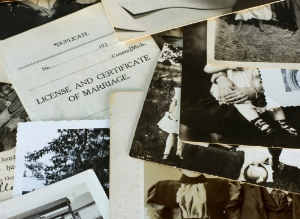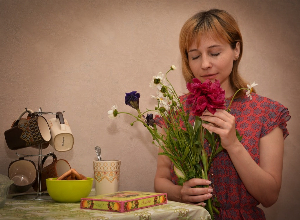What is psychogenealogy, or transgenerational analysis?
Published Apr 7, 2023 • By Marion Moulin
What if a chronic illness, or ill health was the result of a trauma or a repetitive family pattern?
Asthma, nightmares or recurrent failures - psychogenealogy is a plausible and effective therapeutic method for these conditions, according to some therapists.
But what exactly is psychogenealogy? Why try this type of therapy? How does it work? Is it possible to cope with traumatic experience using psychogenealogy?
We explain it all in our article!

What is psychogenealogy (transgenerational analysis)?
Psychogenealogy is a therapeutic approach developed in the 1970s by Anne Ancelin Schützenberger, a French psychologist, psychotherapist and academic. It aims to alleviate physical and/or psychological discomfort by analyzing the patient's family history, in order to better understand the place of this person in the family, and the missions that have been bequeathed to him or her by the generations of women and men who preceded him or her.
This discipline studies pain, illness, trauma, thought and action patterns over several generations: it's main focus is the patient's family and psychological heritage.
Psychogenealogy accepts the idea that there is some sort of transmission from unconscious to unconscious and that the unspoken traumas of the ancestors are still present in the unconscious of their descendants. Psychogenealogy therefore searches for events in the life of our ancestors that may have a link to our current problems.
Thus, psychogenealogy is a form of psychotherapy that looks at how our family, cultural and social background affect our development and our lives today.
It can help to understand how the family past may influence the way we behave, think and feel today. It can also be useful for personal development and personal growth.
Why try psychogenealogy?
Since psychogenealogy helps to analyze family history and learn about its roots, it can help the person to reconstruct himself or herself in order to understand how the past may be troubling his or her current life. Transmission is a central element in psychogenealogy.
It explains, for example, how a grandson of a deportee can be haunted by his grandfather's nightmares as if he had experienced the traumatic event himself.
Another example: for years, a patient had been suffering from sore throats and Raynaud's syndrome; his attempts to be treated following a conventional care pathway failed, so he turned to psychogenealogy. Tracing his family tree back to the French Revolution, he realized that his grandfather, whose name was François (like himself), was guillotined on 9 January 1793. He himself was born 170 years later, on 9 January 1963. François and his therapist acted out this historical episode in psychodrama, and all his symptoms disappeared!
Psychogenealogy is therefore about identifying what we have inherited from the past, that makes us unhappy and/or ill, and therefore about breaking the mechanism of unconscious repetition.
What does a psychogenealogy session consist of?
Most often, patients come with specific questions, or a certain difficulty that they experience in their daily life: recurring social or professional problems, for example.
The practitioner focuses on these questions, and on the patient's personal quest in the "here and now". After hearing the story of the patient's life, the therapist uses drawing, the staging of figurines, cards, or body movements to help the patient form a first representation of his or her family.
Soon enough, the patient creates a genosociogram, or genogram (a variant of the family tree used in therapy) which establishes the link between the present moment and the burden of the family's past, carried by the individual. This is done from memory, by talking to the practitioner, and initially covers 4 generations, i.e. up to the patient's great-grandparents.
The study of the genosociogram helps to go back into the family history, weaving the links between the past and the present and thus better understanding the origin of the patient's suffering.
Who can practise psychogenealogy?
A therapist who practices psychogenealogy is called a psychogenealogist or transgenerational analyst. They have received specific training from a certified training center and adhere to a strict code of ethics.
However, as in any practice, there can be abusing behavior from the part of dishonest practitioners. Many of them do not have a university degree and are not recognised as physicians (psychogenealogy is not, for the moment, part of the curriculum in psychology faculties). Sectarian aberrations have been pointed out several times following the introduction of false memories. A "false memory" syndrome means that a "recovered memory" emerges in the patient's memory. By introducing false memories around serious family dysfunctions such as rape or incest a practitioner tries to favourably take charge of the victim and help him/her to rebuild.
How can you free yourself from family trauma using psychogenealogy?
After tracing the source of the inherited trauma and identifying the transmission to the patient, by interviewing family members, comes the moment of understanding and putting it all into a different perspective.
The process of freeing oneself from the burden of family trauma can be done in different ways: through hypnosis, for example, or it can disappear by itself after the patient has discovered the source of the trauma.
Give it a "like" and share your thoughts and questions with the community in the comments below!
Take care!
Sources :
La psychogénéalogie expliquée à tous, Psychaanalyse
La psychogénéalogie ou thérapie familiale : qu'est-ce que c'est ?, Passeportsante
Psychogénéalogie?, Wikipédia
Psychologies : la psychogénéalogie , Psychologies
La psychogénéalogie, pour dénouer les secrets de famille, Santemagazine
Dérives sectaires en psychothérapie, Cairn
1 comment
You will also like

What are the dangers associated with the over-the-counter sale of certain medicines?
Dec 19, 2020 • 6 comments

 Facebook
Facebook Twitter
Twitter


